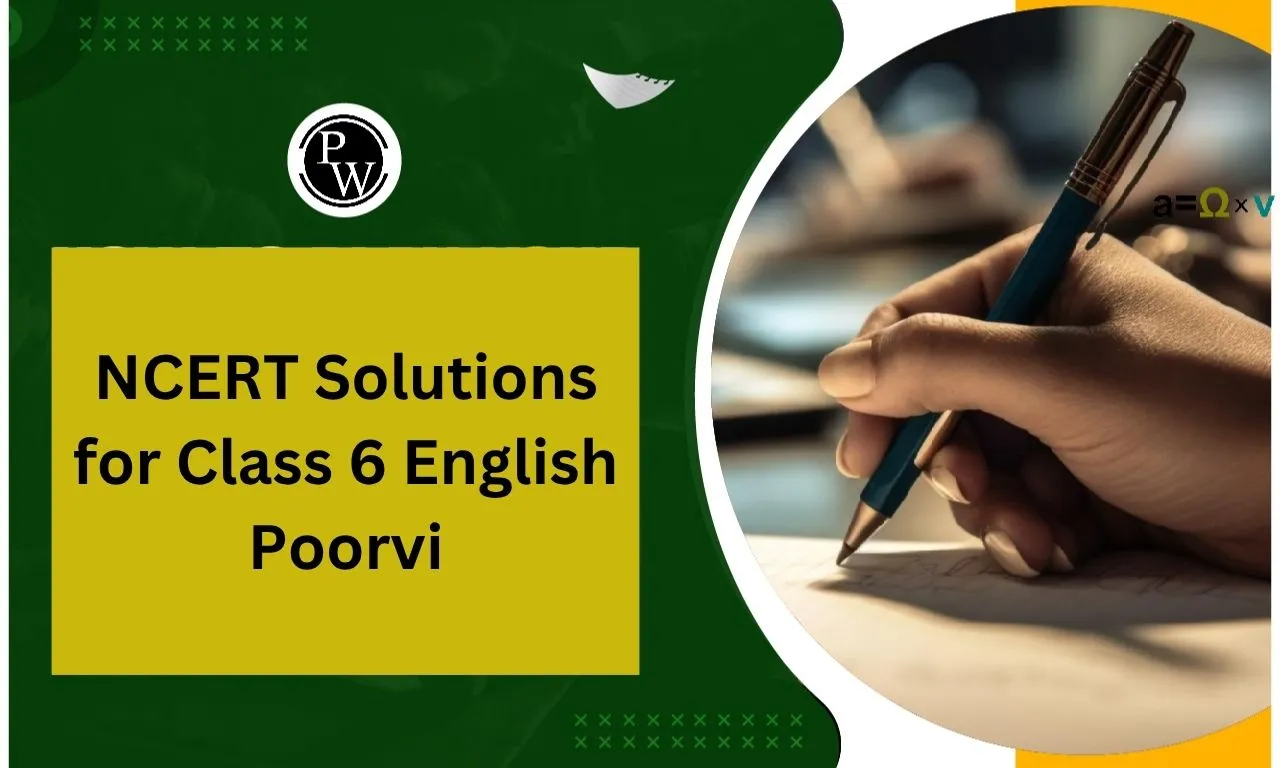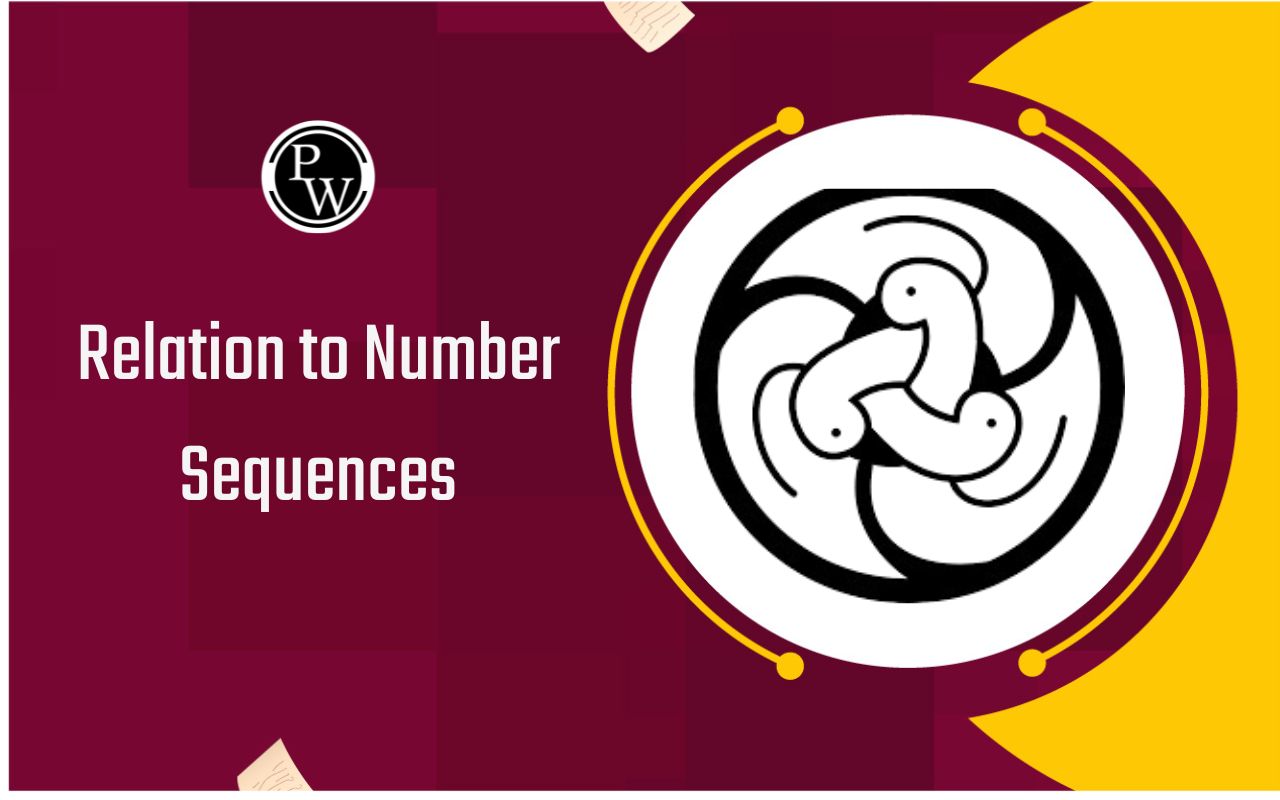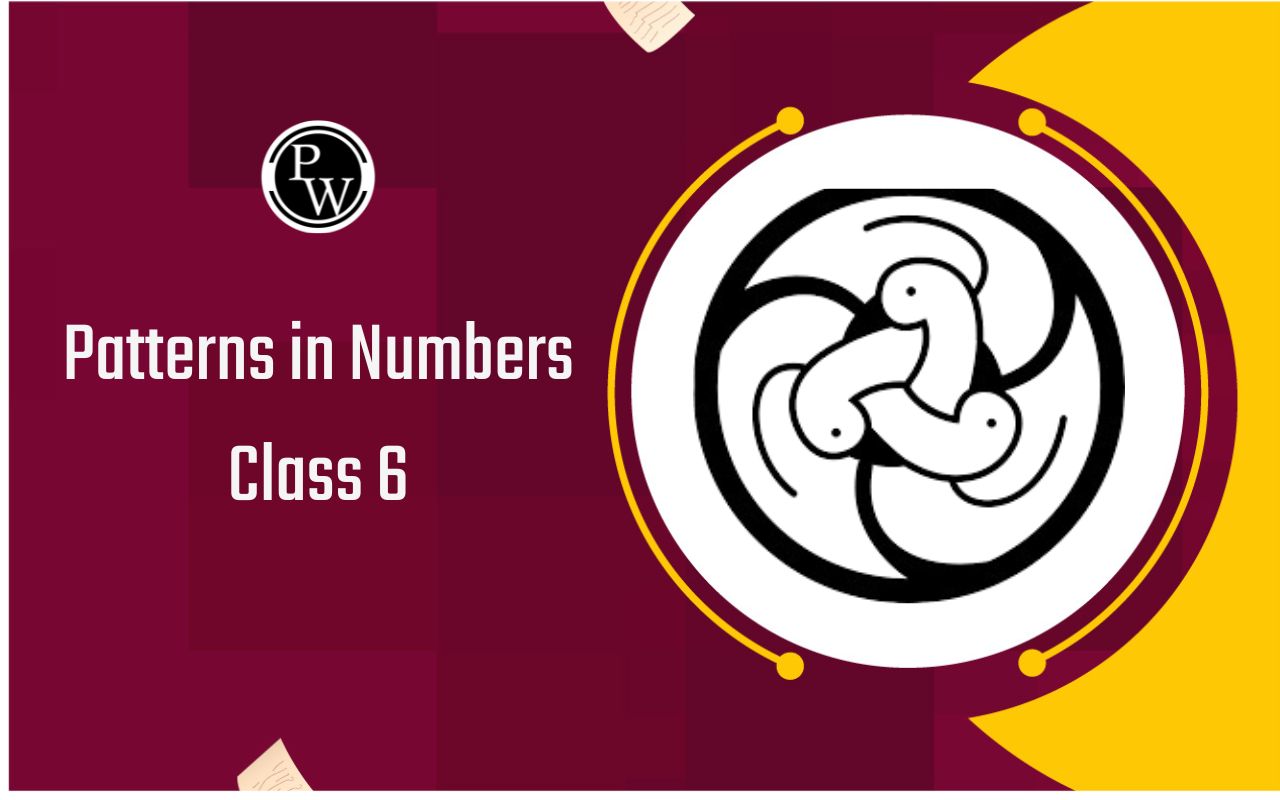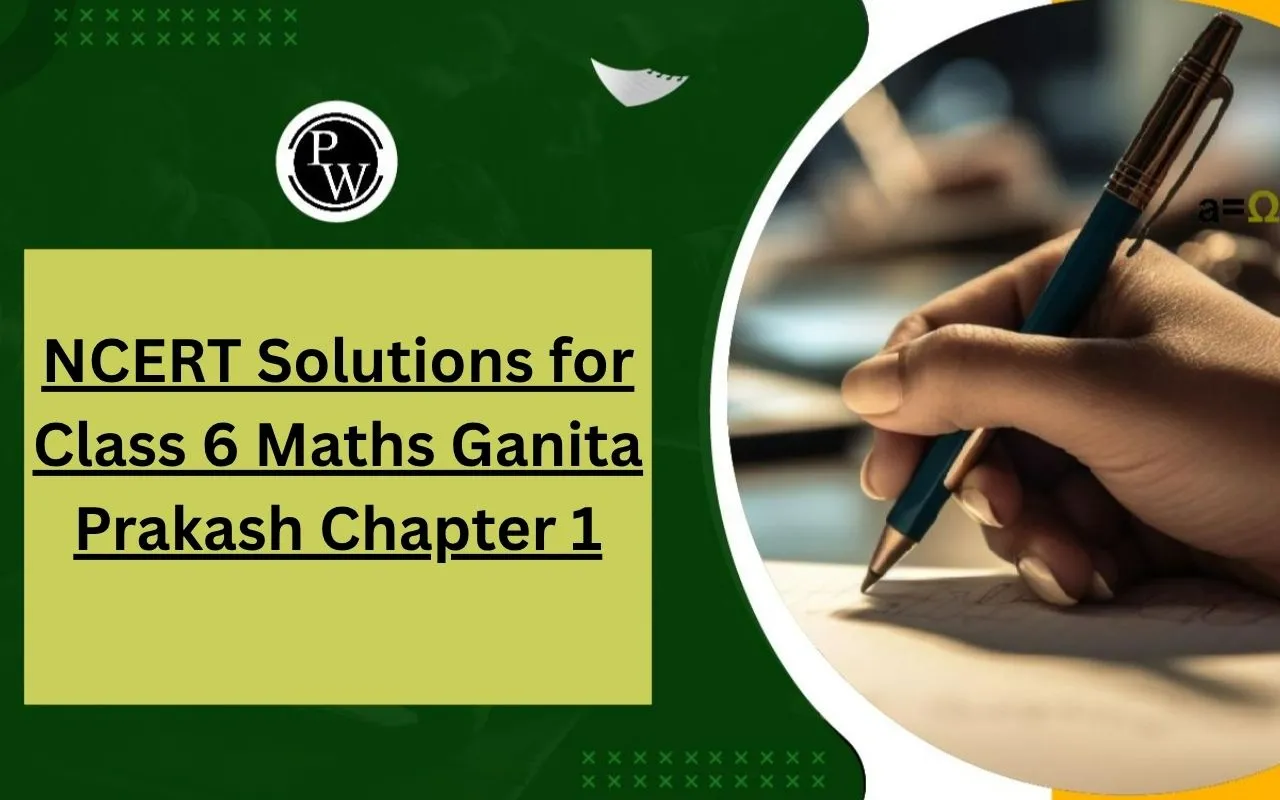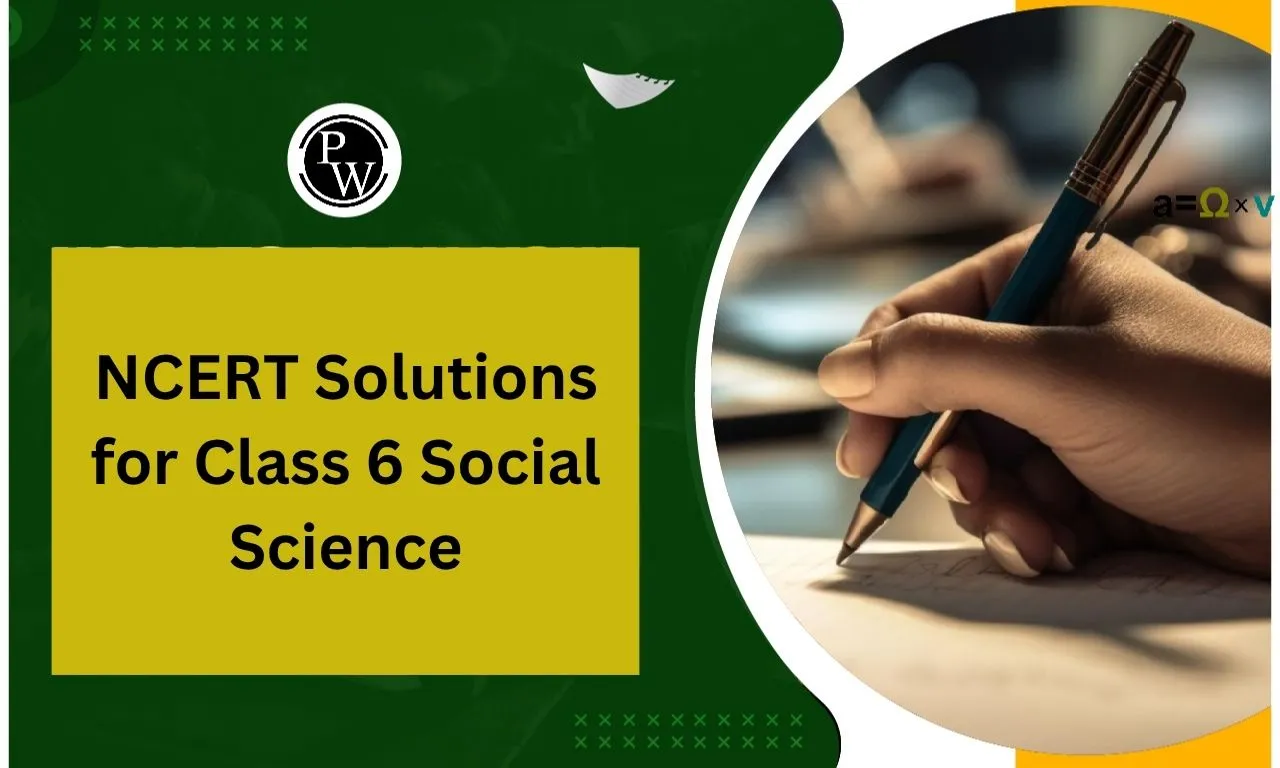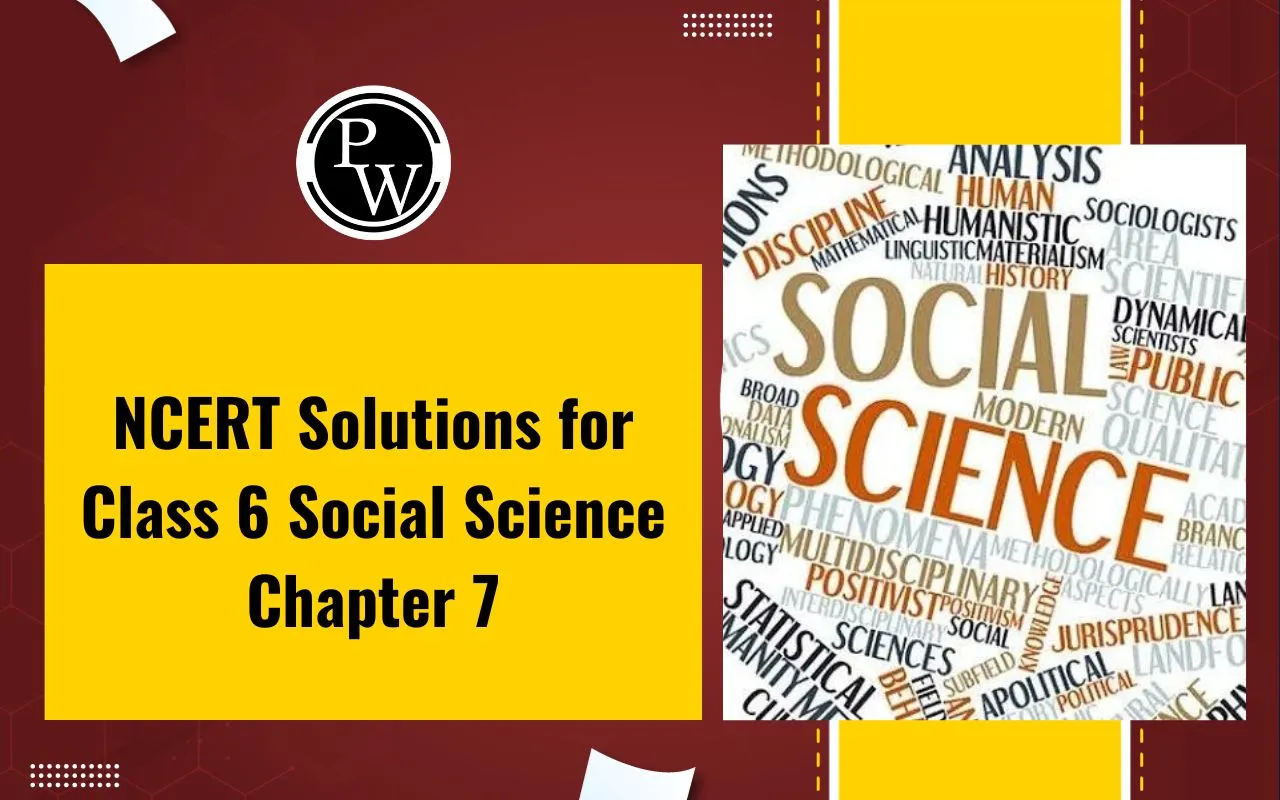
NCERT Solutions For Class 6 Science Chapter 16
NCERT Solutions For Class 6 Science Chapter 16: NCERT Solutions for Class 6 Science Chapter 16 Garbage In, Garbage Out are beneficial for Class 6 students following the CBSE syllabus as they prepare for their exams. The detailed answers presented in this resource will support students in resolving any uncertainties they may have about the topic. To gain a clear understanding of the concepts and achieve good scores in the annual examination, students can practise these solutions. These NCERT Solutions contain questions that help students comprehend the principles related to garbage disposal and waste management. The descriptive nature of the questions provided here will assist them in acquiring a thorough understanding of the topic of Garbage In, Garbage Out.NCERT Solutions For Class 6 Science Chapter 15
NCERT Solutions For Class 6 Science Chapter 16 Overview
Chapter 16 of NCERT Solutions for Class 6 Science, "Garbage In, Garbage Out," comprises crucial topics in waste management and environmental responsibility. Students delve into methods like composting, where organic waste transforms into nutrient-rich compost, promoting sustainable agriculture. Vermicomposting is introduced, illustrating the role of earthworms in breaking down organic matter, enriching soil fertility. The chapter underscores the importance of recycling waste materials, emphasising the eco-friendly benefits and resource conservation. The chapter instils a sense of environmental responsibility and focuses on actionable steps to reduce garbage, promoting the three R's: Reduce, Reuse, and Recycle. These practices aim to minimise waste production, encourage item reuse, and foster responsible waste disposal. The chapter provides a comprehensive understanding of waste management, nurturing ecological awareness and inspiring students to contribute positively to environmental conservation.
NCERT Solutions for Class 6 Science Chapter 1
NCERT Solutions For Class 6 Science Chapter 16 Garbage In, Garbage Out
NCERT Solutions for Class 6 Science Chapter 16 Garbage In, Garbage Out are provided here with simple step-by-step explanations. 1. (a) Which kind of garbage is not converted into compost by the red worms? (b) Have you seen any other organisms besides red worms in the pit? If yes, try to find out their names. Draw pictures of these.Solution:
a) Pieces of cloth, polythene bags, broken glass, aluminium wrappers, nails and broken toys are not converted into compost by the red worms. b) Earthworms, small insects like ants and millipedes, are found in pits. Earthworm: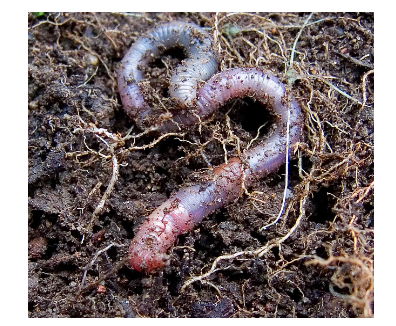
NCERT Solutions For Class 6 Science Chapter 12
Ants: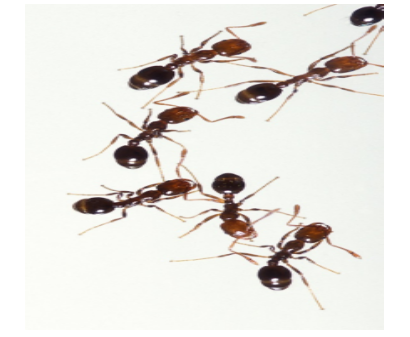 Millipede:
Millipede:
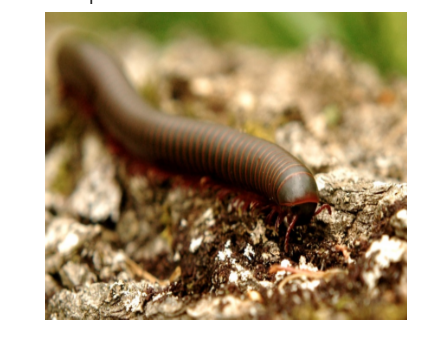
NCERT Solutions for Class 6 Science Chapter 3
2. Discuss: (a) Is garbage disposal the responsibility only of the government? (b) Is it possible to reduce the problems relating to the disposal of garbage?Solution:
a) No, not just the government, but everybody is responsible for garbage disposal. We should bifurcate wet and dry waste, recycle non-biodegradable substances, and we should also reduce the accumulation of garbage in our houses and streets. b) Yes, it is possible to reduce the problems of garbage by scientific disposal of garbage; we can do it by bifurcation of different waste and also by recycling the waste materials. 3. (a) What do you do with the leftover food at home? (b) If you and your friends are given the choice of eating on a plastic plate or a banana leaf platter at a party, which one would you prefer and why?Solution:
(a) Leftover food can be collected and used to form compost. Compost produces nutrients necessary for the growth and development of plants. (b) We would prefer to eat food on a banana leaf plate because it acts as a harmless substance which helps to form manure by the process of composting, whereas plastic plates cannot be converted into harmless substances by composting. Plastic plates are not degradable, hence can persist in the environment and cause many problems.NCERT Solutions for Class 6 Science Chapter 14
4. (a) Collect pieces of different kinds of paper. Find out which of these can be recycled. (b) With the help of a lens, look at the pieces of paper you collected for the above question. Do you see any difference in the material of recycled paper and a new sheet of paper?Solution:
(a) Papers such as newspapers, notebooks and magazines can be recycled easily. However, shiny and coated papers cannot be easily recycled. (b) Recycled paper is usually thick or rough when compared to a new sheet of paper.NCERT Solutions for Class 6 Science Chapter 8
5. (a) Collect different kinds of packaging material. What was the purpose for which each one was used? Discuss in groups. (b) Give an example in which packaging could have been reduced? (c) Write a story on how packaging increases the amount of garbage.Solution:
(a) Different kinds of packaging materials used commonly are given below:- Cardboard – Shoes, bulbs, soap, and other boxes.
- Plastic Bags – Toys covers, shopping bags, sarees bags, etc.
- Wooden Boxes – Fruit baskets and boxes for hardware.
- Jute Bags – School bags, vegetable bags, shopping bags, etc.
NCERT Solutions For Class 6 Science Chapter 16 PDF Download
6. Do you think it is better to use compost instead of chemical fertilisers? Why? Yes, it is better to use compost instead of chemical fertilisers for the following reasons:- It is easy to prepare compost
- Compost is environment friendly as it does not cause any health issues in humans and animals
- Compost will not cause pollution
- Compost increases soil fertility.
- Compost is biodegradable
NCERT Solutions For Class 6 Science Chapter 9
Benefits of NCERT Solutions for Class 6 Science Chapter 16
The benefits of utilising NCERT Solutions for Class 6 Science Chapter 16, titled "Garbage In, Garbage Out," are multifaceted and play a crucial role in the overall learning experience of students. Here's a detailed exploration of the advantages: 1. Comprehensive Understanding: NCERT Solutions provide in-depth explanations and solutions to the questions and topics covered in the chapter. This ensures that students gain a comprehensive understanding of the various aspects related to waste management, composting, vermicomposting, recycling, and the drawbacks of plastic usage. 2. Structured Learning: The solutions are structured in a step-by-step manner, facilitating a systematic learning approach. This structured format helps students follow the logic and reasoning behind each solution, making the learning process more organised. 3. Clarity of Concepts: The detailed answers in the solutions contribute to the clarity of concepts. Students can refer to these solutions to clarify any doubts they may have regarding the processes involved in waste management, the environmental impact of plastic, and the methods of recycling. 4. Exam Preparation: NCERT Solutions serve as an invaluable resource for exam preparation. The solutions provide a model for answering questions that may appear in examinations, enabling students to understand the expected format and content of their responses.NCERT Solutions For Class 6 Science Chapter 6
5. Application of Knowledge: The solutions not only provide answers but also emphasise the practical application of knowledge. Students can relate theoretical concepts to real-life scenarios, fostering a deeper appreciation for the importance of responsible waste management. 6. Promotion of Critical Thinking: By presenting solutions in a logical and analytical manner, NCERT Solutions encourage critical thinking. Students are prompted to think beyond rote memorization, promoting a deeper engagement with the subject matter. 7. Enhanced Retention: The clarity and coherence of the solutions contribute to enhanced retention of information. Students are more likely to remember and apply the concepts learned in the chapter when they have a clear understanding of the solutions. 8. Self-paced Learning: NCERT Solutions provide a self-paced learning opportunity. Students can go through the solutions at their own speed, revisiting concepts as needed, and reinforcing their understanding of the chapter. 9. Holistic Development: Beyond academic knowledge, the chapter on waste management promotes values of environmental responsibility, sustainability, and a sense of duty towards conserving natural resources. These aspects contribute to the holistic development of students.NCERT Solutions For Class 6 Science Chapter 4
How to Prepare With NCERT Solutions for Class 6 Science Chapter 16
Preparing with NCERT Solutions for Class 6 Science Chapter 16, "Garbage In, Garbage Out," involves a systematic and effective approach to maximise understanding and retention. Here's a detailed guide on how to prepare using these solutions: 1. Read the Chapter Thoroughly: Begin by reading the entire Chapter 16 carefully. Understand the key concepts related to waste management, composting, vermicomposting, recycling, and the drawbacks of plastic usage. Familiarise yourself with the terminology used in the chapter. 2. Take Notes: While reading, take concise notes on important points, formulas, and processes. These notes will serve as a quick reference during revision and help reinforce key concepts. 3. Attempt Exercises Independently: After understanding the theoretical aspects, attempt the exercises provided in the NCERT textbook on your own. This will help you assess your comprehension of the topics covered in the chapter. 4. Refer to NCERT Solutions: Once you've attempted the exercises, refer to the NCERT Solutions for Chapter 16. Compare your answers with the solutions provided. Take note of any differences and understand the correct approach to solving each question. 5. Understand the Step-by-Step Solutions: Pay close attention to the step-by-step solutions provided in NCERT Solutions. Understand the logic and reasoning behind each step, ensuring clarity on the application of concepts.NCERT Solutions for Class 6 Science Chapter 13
6. Clarify Doubts: If you encounter any difficulties or have doubts about specific topics, use the NCERT Solutions as a reference to clarify your doubts. Seek additional help from your teachers or peers if needed. 7. Practise Additional Questions: Supplement your preparation by practising additional questions related to the chapter. Look for extra problems in reference books or online resources to reinforce your understanding and problem-solving skills. 8. Relate Concepts to Real-life Examples: Connect theoretical concepts to real-life examples. Understand the practical implications of waste management strategies discussed in the chapter. This will enhance your ability to apply knowledge in diverse situations. 9. Create Visual Aids: Use visual aids such as diagrams, flowcharts, or mind maps to represent key processes and concepts. Visualising information can aid in better understanding and retention. 10. Review Regularly: Schedule regular review sessions to reinforce your understanding of Chapter 16. Reviewing periodically helps in long-term retention and ensures that the concepts stay fresh in your mind. 11. Discuss with Peers: Engage in discussions with your classmates or study group. Explaining concepts to others and discussing different problem-solving approaches can deepen your understanding and provide new insights. 12. Mock Tests and Self-assessment: Take mock tests or create self-assessment quizzes based on the chapter. This will help you gauge your preparedness for exams and identify areas that may need further attention.NCERT Solutions for Class 6 Science Chapter 10
NCERT Solutions For Class 6 Science Chapter 16 Extra Questions
Students should grasp concepts and review subjects regularly to be well-prepared for Science exams. It is recommended that students solve this collection of questions after revisiting concepts in the textbook to ensure ongoing advancement in their studies. Students are suggested to solve Important Questions from Class 6 Science Chapter 16 after strengthening their conceptual understanding to help them retain the topics. 1. What kind of waste is not converted into compost by organisms like earthworms? Non- biodegradable things like plastic bags, tins, bottles, broken bags, sanitary napkins, and aluminium foil are examples of things which are not converted into compost by earthworms. 2. Is garbage disposal only the responsibility of the government? No, garbage collection is not only the government; ‘s responsibility. As waste is generated by each of usAs responsible citizens of India, it is our responsibility to properly dispose of it. Proper waste management and waste disposal are necessary for developing a healthy atmosphere and preventing diseases. 3. Is it possible to reduce the problem relating to the disposal of garbage? Yes, we can reduce the problem relating to the disposal of garbage.by following simpler steps which affect it largely. The steps are given below :- Recyclable materials must be used.
- Non- biodegradable materials must be avoided, for example, plastic.
- Segregation of Biodegradable materials and Non- biodegradable materials must be done while dumping waste in bins.
- People should follow the 3Rs -Reduce, Reuse and Recycle.
NCERT Solutions for Class 6 Science Chapter 5
4. Is it better to use compost instead of chemical fertilisers? Support your answer with a strong statement. It is better to use compost instead of chemical fertilisers for the reasons given below:- Compost is biodegradable and environmentally friendly.
- Compost increases soil fertility.
- Preparation of compost is easy.
- Using compost does not cause any side effects or health issues in humans.
- Rotting garbage
- Dry leaves collected in the garbage
- Old newspapers
- Rotting garbage: Rotting garbage, including vegetable peels, fruit peels, dry leaves etc., is biodegradable waste. The best way to make use of rotting garbage is by converting it into manure or compost. This can be achieved by digging a pit in the soil, dumping the waste in it and covering it up.
- Dry leaves: Dry leaves collected in the garbage can be used as manure by converting them into compost, or vermicompost.
- Old newspapers: Old newspapers can be recycled and used as recycled paper, handicrafts, or paper bags.
NCERT Solutions For Class 6 Science Chapter 7
7. What kinds of waste need to be separated from each other in waste bins? Biodegradable waste and non-biodegradable waste are the two types of waste that need to be separated into completely separate waste bins. The biodegradable waste bin can be converted into simpler molecules by microbes and utilised as manure. The bin comprising non-biodegradable waste cannot be converted or recycled. As a result, the waste may be put into a landfill. 8. Give examples of 2 kinds of waste which need to be sent in- Landfill
- Composting
- Landfill: Landfill contains non-biodegradable wastes like empty glass bottles, plastic plates, and metal pieces.
- Composting: Composting contains biodegradable wastes like vegetable peels, fruit peels, animal excrements, dry leaves, etc.
NCERT Solutions for Class 6 Science Chapter 16 FAQs
What activities are considered improper waste disposal?
What do the 4 R's of waste management stand for?
How can Class 6 students deal with garbage effectively?
What are the two most popular methods of waste disposal?
How can biodegradable waste be disposed of at home?


